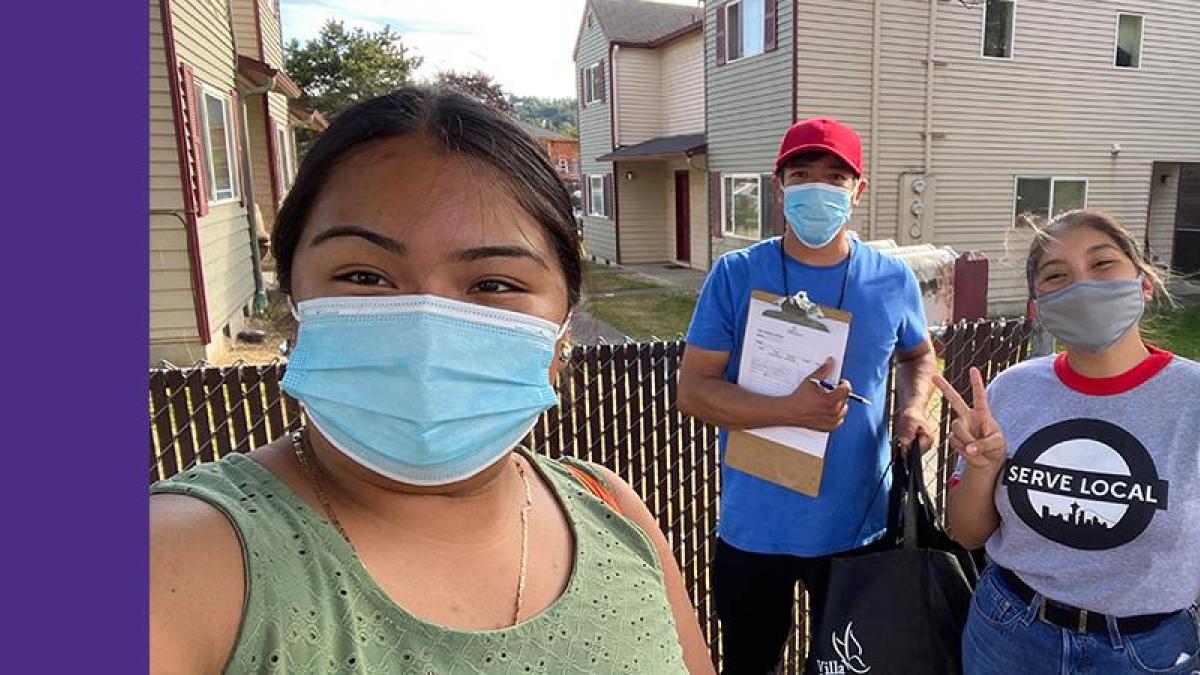
Climate resilience is the ability to prevent, prepare for, and respond to disruptions caused by climate change.
UW & PARTNERS UNDERTAKE DUWAMISH VALLEY CLIMATE RESILIENCE NEEDS ASSESSMENT, AKA "SASPER" SURVEY
Project highlights concerns of communities along Duwamish River (King 5, Dec 12, 2023)
Survey finds Climate Hazards are Duwamish Valley's Top Concern (Crosscut, June 2, 2023)
Seattle plans Resilience Hub program expansion with climate change in mind (The Urbanist, Nov 8, 2023)
Seattle’s Duwamish Valley neighborhoods of South Park and Georgetown are home to racially diverse and low-income communities that experience an unfair share of climate change impacts in the region. In recent years, flooding has become more frequent and severe and the area is expected to be among the city’s hardest hit by sea level rise. In response, the City of Seattle is establishing a Duwamish Valley Resilience District (DVRD). The DVRD will center environmental justice and racial equity in its planning for adaptation and mitigation in response to flood risks and other impacts of climate change. An early step in this planning is to conduct an assessment of the community’s needs, which will help the city and its Duwamish Valley residents prepare for and build resilience to the impacts of climate change.
In partnership with the University of Washington, state and local public health agencies, and the non-profit Duwamish River Community Coalition, the City of Seattle is participating in a “SASPER” – Seattle Assessment of Public Health Emergency Response. The SASPER builds on methods used by the U.S. Centers for Disease Control ("CASPER") to conduct door-to-door surveys to assess pre- and post-disaster needs in impacted communities. The SASPER will actively engage residents in assessing and building resilience strategies tailored to their local conditions and needs. Data collected and lessons learned from the project will drive future equity-centered approaches to disaster needs assessment, resilience planning, and climate change mitigation and adaptation strategies.
See the final report summarizing the results of the SASPER study
Download ReportSee a two-page summary of the SASPER results
Download Fact SheetSee the evaluation of the SASPER project
Download EvaluationResilience on Seattle's Waterfront
Learn moreOur Partners
Thank you to our partners: City of Seattle Office of Sustainability and Environment, Duwamish River Community Coalition, Duwamish Valley Youth Corps, Public Health–Seattle & King County, Washington State Department of Health, U.S. Centers for Disease Control, UW Department of Environmental and Occupational Health, UW School of Nursing, UW Evans School of Public Policy and Governance, UW RAPID Facility and to Nicole Errett, Principal Investigator, Director, UW Collaborative on Extreme Event Resilience and EDGE Center CEC.
Funding for this project was provided by the UW EarthLab Innovation Grants, the UW Interdisciplinary Center for Exposures, Diseases, Genomics, & Environment (NIEHS Award Number P30ES007033), the Cascadia Coastlines and Peoples Hazards Research Hub (NSF Award Number 2103713) and the UW RAPID Facility (NSF Award Number 2130997). Any opinions, findings, and conclusions or recommendations expressed in this material are those of the author(s) and do not necessarily reflect the views of the National Science Foundation or National Institutes of Health.
Duwamish Valley Program
Learn more about the City of Seattle's Duwamish Valley Program and its work to create a Duwamish Valley Resilience District.
Duwamish Valley ProgramDuwamish River Community Coalition
DRCC's Climate Justice Program and Duwamish Valley Youth Corps are key community partners for resilience planning in the Duwamish Valley.
Duwamish Valley Youth CorpsU.S. Centers for Disease Control
The CDC's Community Assessment for Public Health Response (CASPER) toolkit was adapted for use in this project.
CDC's Casper toolkit